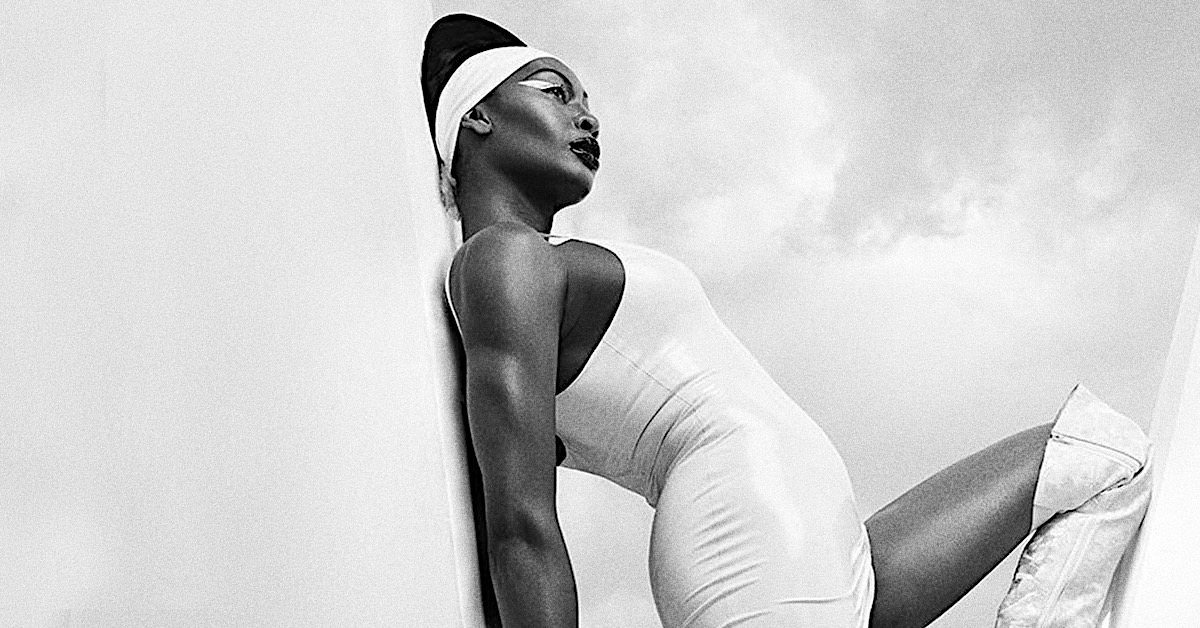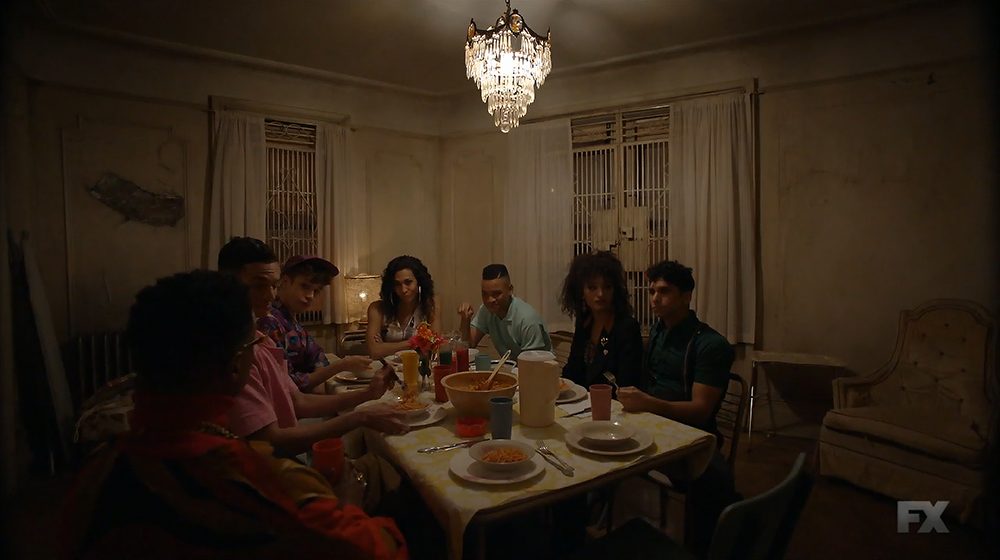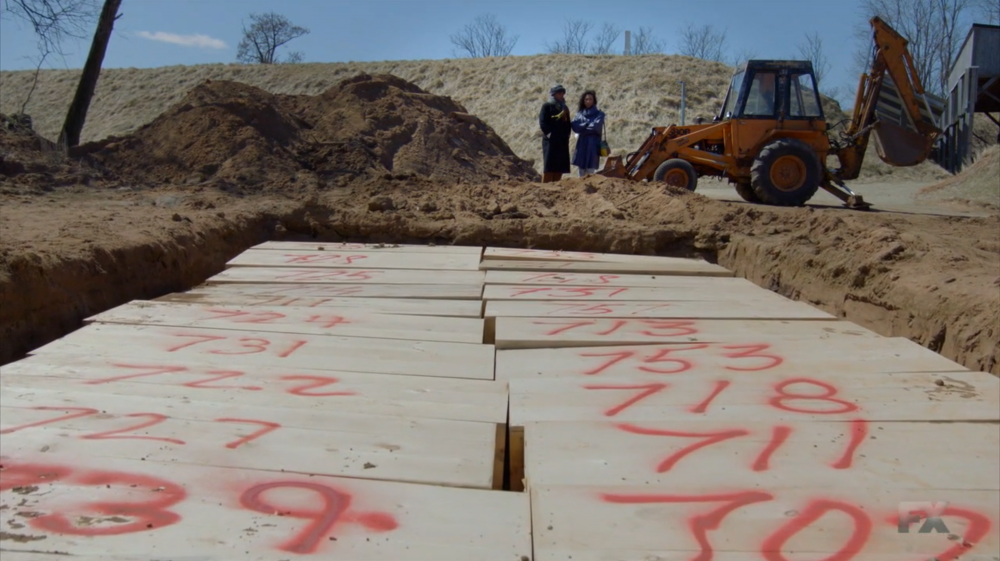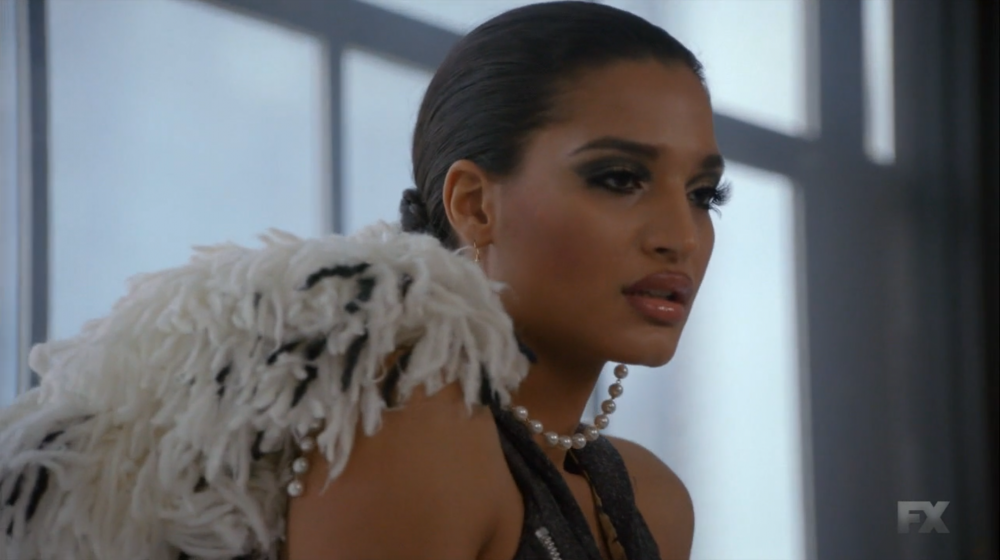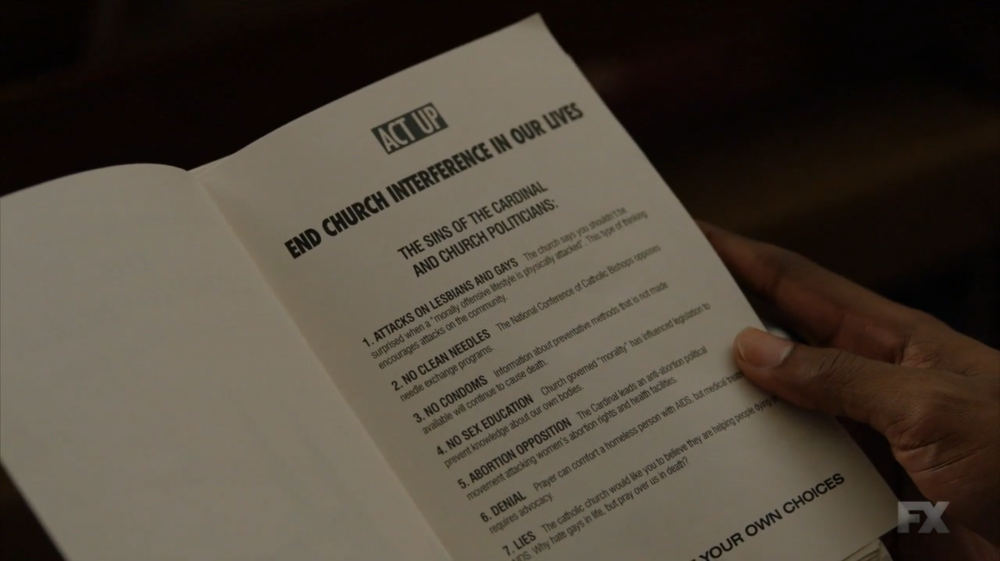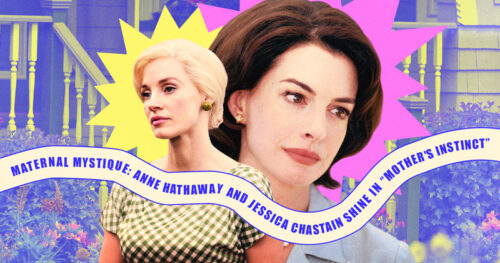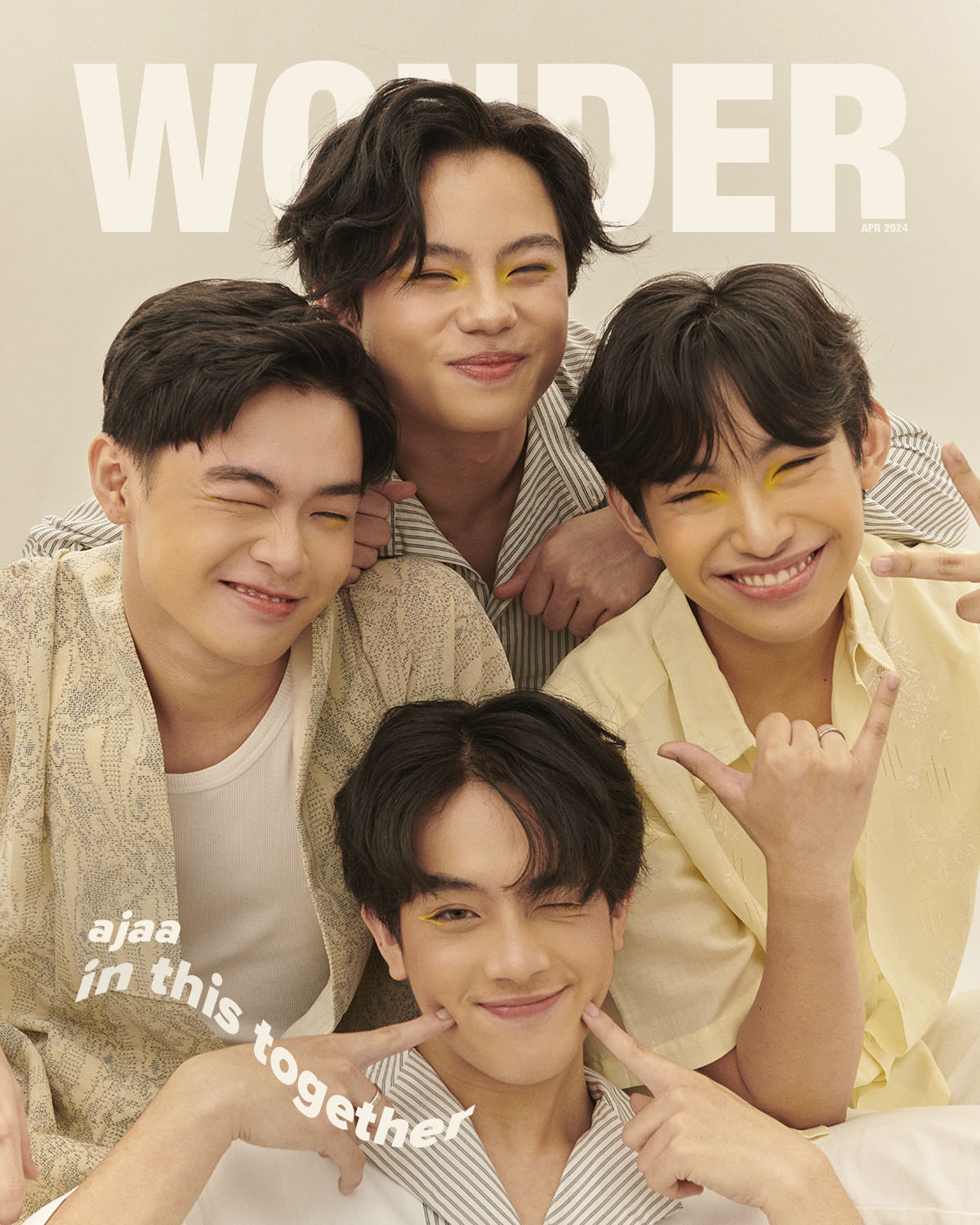The category is: A Marvelous Awakening
Warning: minor spoilers ahead.
Inarguably one of the best new drama series of 2018, Pose spent its first season painting an illuminating picture of life for the LGBTQ in 1980’s New York City. But what creators Ryan Murphy, Steven Canals and Brad Falchuk brought to the table was more than a gripping narrative that turned mainstream television on its head. It was truth-telling woven into a fictional storyline and a proper tribute to the golden age of New York’s ballroom community. The latter is referenced so often in pop culture today without requiring thoughtful consideration of its origin and Pose set out to remedy that. Over eight riveting episodes, the FX series would rewind to the pivotal era of the ball scene in Harlem and the Bronx: the subculture on the cusp of recognition, its animated sartorial showdowns, voguing competitions and seasoned queens from legendary drag houses being but an underground phenomenon. Pose would also unapologetically recapitulate the peak of the HIV/AIDS epidemic in America, recognizing that any glitz and glamour on the ballroom floor went hand-in-hand with grit and hustle on the street.
This first season, however emotional, ended on a high note. In the finale, the upstart House of Evangelista made a clean sweep at the ball and proved to be a force to be reckoned with. Blanca Rodriguez (Mj Rodriguez) went on to win the coveted title of “Mother of the Year,” but not before welcoming her once-wayward son Lil Papi (Angel Bismark Curiel) back into the family, reuniting with her former house mother Elektra (Dominique Jackson) and gathering new recruits. With loose ends tied and difficult chapters closed shut, all was right, even for a while, this side of the world. Underscored by Force MD’s “Love Is A House” (the fabulous Pose soundtrack being yet another entrancing element to stick around for), the final scenes offered a last look at an unlikely surrogate family, but a real family nonetheless, and a true testament to the enduring power of love.
Friday family dinner is mandatory at the House of Evangelista. Photo FX
The second season is now underway and the category (still) is: Live! Work! Pose…and perhaps, expect a little more. With the bar set high by its first season, only time will tell if Pose’s glaring momentum is sustained. “Acting Up,” the first episode in the sophomore installment that premiered on June 11, showed promising signs that it will be.
Set in 1990, Pose picks up two years after the Evangelistas’ winning streak at the Princess Ball, quick to remind that sweet victories in the ballroom are often countered by bitter realities in the actual world. Aboard a ferry, house mother Blanca and emcee extraordinaire Pray Tell (Billy Porter) make their way to pay their respects. The destination is the most remote part of New York City at Hart Island in Long Island Sound. It goes by many names––the giant city cemetery, the “Island of the Dead,” the resting place for those who die poor or unclaimed. “How did Keenan end up here? I thought he had family,” says Blanca, jolted by the view of boxes in lieu of coffins being stacked and then covered with dirt. “No,” answers Pray. “Orphan just like the rest of us.” For Blanca and Pray, it’s a jarring look at one very possible end of the line for them. So they best get busy living or get busy dying.
Bodies in Hart Island are laid to rest in pine boxes, nameless and degraded. Photo FX
The two protagonists, apart from being bound by friendship, are held together by a secret that must stay between them for now: They are both HIV positive. At a time where very little about the epidemic was reported, receiving the diagnosis felt very much like a death sentence. (In America, there were 853 AIDS deaths in 1982, 2,304 in 1983 and 4,251 in 1985. The numbers would only continue to increase exponentially in the ‘90s.) For marginalized, AIDS-afflicted queer and trans black and Latinx individuals, a burial at Hart Island’s potter’s field is the final insult. Cards stacked up against them in real life, abject in death and even in burial, those who die of AIDS are “quarantined” in a separate trench lest “infection among the deceased breaks out.” The dead are not exempt from discrimination…and AIDS victims are doomed to get the most undignified of undignified burials.
Still, nothing knocks Blanca off her course. Between snatching trophies and pursuing her dreams of leaving a legacy, she is adamant about challenging the world of “acceptability.” The juxtaposition that finding out you are about to die suddenly gives you the will to live still exists, too. But it is fortified by a desire to raise the community, emboldened by the rising popularity of one particularly catchy tune: “Vogue” by Madonna.
RELATED: Of Pride Anthems and Legendary Allies: Gay Icons in Music You Need to Know
The song would become the hit on everybody’s lips and in voguing, the dance on everybody’s hips. And Madonna calling on ballroom legends from the House of Xtravaganza certainly helped her create the proper, respectful tribute to the scene. “Vogue” was an omen––to some, at least––that the ballroom community was on the “cusp of a revolution.” To others, it was a foreshadowing of the exploitation of their community.
Alongside the release of Madonna’s chart-topper, 1990 saw black and brown queer and trans performers from the same community being given the spotlight in Jennie Livingston’s Paris Is Burning. The hit documentary eventually drew parallels between the two artists. Madonna and Livingston: celebrated but simultaneously criticized for telling a story that wasn’t theirs to tell…two white, blonde cisgender women and two sterling examples, some argued, of white voyeurism.
“That’s our culture on MTV!” exclaims a starry-eyed Blanca. “We about to go mainstream!” But Pray Tell wastes no time cautioning her: “That’s the same shit they said about disco,” he says, snapping back and pointing out the novelty of Village People’s “Y.M.C.A.” two decades ago. “Studio 54 stayed opened for three years and when the man shut it down, all those angry, black- and homo-hating white boys took their disco records to the baseball stadium and blew ‘em up.”
Being written off as just another generation that “thinks that they are gonna be the ones that are finally invited to the party” doesn’t faze this house mother, though. She sees “Vogue” as the community’s ticket to acceptance. A new shared language that would give her family leverage. In the episode, Blanca urges Angel (Indya Moore) to join the “Fresh Faces” modeling competition after seeing an ad in a magazine. “Don’t forget to mention that you can vogue in the special skills section,” she tells her daughter, handing her the application form.
At the upscale venue of the go-see, Angel sticks out like a sore thumb in the sea of white young women. This brings to light another reality for transwomen: Angel, on top of trying her luck as a member of a minority, would do so and model “in stealth,” taking her chances on what had been considered an advantageous ability to “pass” as cisgender. True enough the model scout latches on. “So, you can vogue? Like the new song?” she says, oblivious to the fact that voguing had been alive two full decades before white middle-class America ever caught on. Delighted by Angel’s vibrant personality on top of her look, she, then, hands her the contact information of a fashion photographer. New professional headshots await the model hopeful; finally, a victory outside of the ballroom.
Angel (Indya Moore) on the set of her test shoot, not knowing that her past is about to creep up from behind. Photo FX
RELATED: Sex, Y, Z: A Lesson on Gender Etiquette
In another underground phenomenon, Pray Tell discovers a different way of forging acceptance. The endearing Nurse Judy (Sandra Bernhard), previously seen guiding Blanca through her change of diagnosis from being HIV positive to having AIDS, introduces Pray to the AIDS Coalition to Unleash Power (or ACT UP for short). “You’ve got to put your pain to good use…or I swear to god, it will eat you alive,” she tells Pray. He, at first, refuses to step into the activists’ meeting, indifferent to the plight of “preppy white queens who have never had to fight for a goddamn thing in their lives.” Alas, he is proven wrong.
His eyes are opened to a new reality where the fight is not evaded through flights of fancy in a ballroom. Instead, it is taken straight to the institutions that could in fact effect change. Pray joins the coalition just as it punches up to the Roman Catholic Church. The plan is to stage a die-in protest at St. Patrick’s Cathedral (a scene inspired by the monumental December 1989 protest outside this same location that brought together 4,500 members of the ACT UP and Women’s Health Action Mobilization or WHAM!) “Act up. Fight back. Fight AIDS.” A six-word mantra that encapsulates a surge of empowerment. Demand to be seen, it says. Make it difficult for people to look away.
‘ACT UP’ stages a die-in protest at St. Patrick’s Cathedral. Photo FX
In a rapid but much-needed development, Pray Tell decides he would no longer be helpless. No longer would he watch friends and family around him die of AIDS; no longer would he simply wait for death to come for him next. No longer would he retreat to the fantasy world of the ballroom as a coping mechanism for his harsh realities, which are, at the end of the day, inescapable anyway. Get busy living or get busy dying: the power of ACT UP’s mobilization would restore the spark in him to do the former.
Silence = Death. What the second season of Pose reveals is the beauty of a community that does not wish to merely exist. Maybe Blanca is right. They are on the cusp of a revolution––and it’s that of an empowered community that now realizes they can demand, kicking and screaming if they have to, for their rights. “They don’t give a shit about us, so we better start caring about ourselves,” exclaims Pray Tell after witnessing Elektra put in the work in the ball, but not out in the real world where her support is needed. “Show up for your lives! Wake up!” The fight has to be taken outside the ballroom, no questions asked.
RELATED: The ABCs of Gender
‘Pose’ airs every Tuesday at 10PM CT on FX Networks. Watch the second season trailer below or catch-up and stream the complete first season on Netflix here.
Featured Image Pari Dukovic for FX Networks
Art Alexandra Lara


